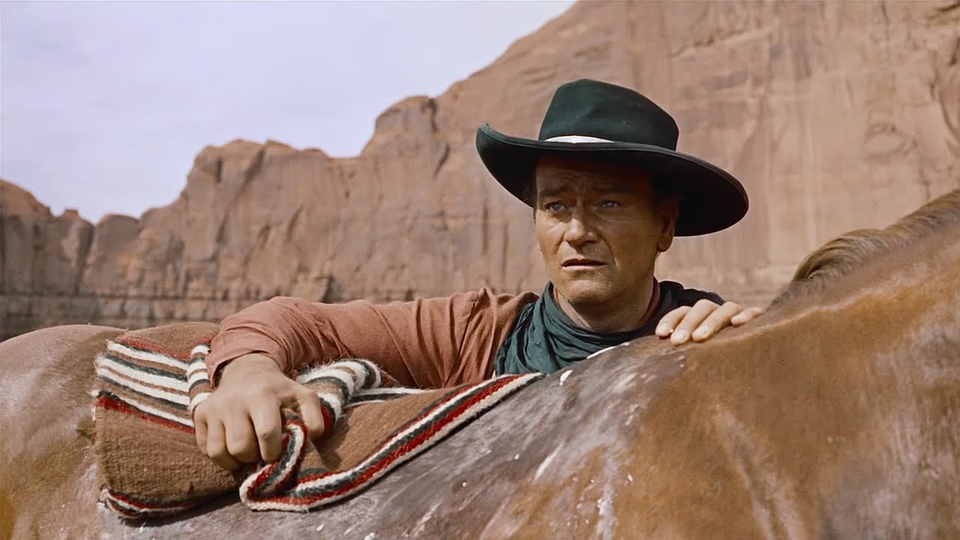The Searchers

The Searchers is a very good film about a very flawed man.
The story opens three years after the Civil War. John Wayne plays Ethan Edwards, a former Confederate soldier turned drifter who visits his brother’s family on the Texas frontier.
Shortly after Ethan arrives, Comanches massacre his brother and sister-in-law. After the funeral, Ethan sets off in search of his young niece Debbie, whom the Comanche have taken captive. Accompanying Ethan is Martin Pawley, an orphan raised by Ethan’s brother and sister-in-law as their own.
It’s a daunting task. Director John Ford uses the gigantic mesas of Monument Valley to frame his characters as tiny and alone. Small specs on the vast, unforgiving landscape of the frontier.
As the years pass, Ethan’s hatred for the Comanche consumes him. Martin realizes with growing horror that Ethan means to kill Debbie should they find her. Such is Ethan’s unbridled hate for the Comanche, that he can’t bear the thought of her having gone native.
The film isn’t all dark. During breaks when the trail goes cold, Ethan and Martin return to a neighboring homestead. There, Martin and a young pioneer girl fumble at flirtation in a series of slapstick events. These bits can be jarring, but they exist to lighten the mood. Without them, the ending would feel disingenuous.
Putting aside these comedic interludes, this is Wayne’s movie. He gives a fearless performance. Consider the scene where he meets Martin. While he’s all smiles around his family, when he sees Martin he goes cold. Martin is one-eighth Comanche. In a glance, Ethan identifies him as ‘the other’ and his bitterness bubbles to the surface. In Ethan, Wayne inhabits a disenfranchised, angry man. After battling on the losing side of a war, he longs for validation. In the Comanche he finds an outlet for his rage. Another war to fight. A chance to redeem himself.
But of course, he’s beyond redemption, as illustrated by the now-famous closing shot. As everyone enters the house, Ethan remains outside. He shifts his weight, watching the joy inside. In his eyes, we see a longing battling the unease. He turns and walks back toward the frontier alone.
It’s this refusal to judge or redeem Wayne’s character that makes The Searchers resonate. Ethan has moments of compassion and heroism, but the film doesn’t allow for a contrived finale that sees him cured of his bigotry. Nor does it paint him as a one-dimensional villain incapable of recognizing his own shortcomings. Instead, we’re left to acknowledge Ethan’s nature and contemplate the role men like him played in the settling of the American West.